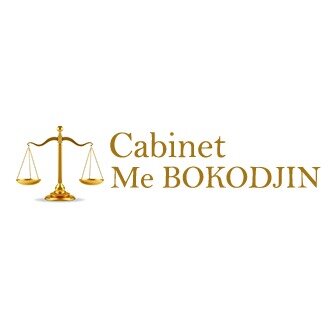Best Environmental Law & Compliance Lawyers in Lomé
Share your needs with us, get contacted by law firms.
Free. Takes 2 min.
List of the best lawyers in Lomé, Togo
About Environment Law in Lomé, Togo
Lomé, the capital city of Togo, is a vibrant metropolis situated along the Gulf of Guinea. In recent years, the rapid urbanization and industrial activities have placed increasing pressure on the environment. Environmental law in Lomé primarily focuses on the regulation of activities that have an impact on the air, water, soil, and biodiversity. These laws aim to promote sustainable development by establishing standards for environmental protection, preventing pollution, and ensuring that natural resources are used responsibly.
Lomé's legal framework is influenced by both national regulations and international agreements to which Togo is a party. Key institutions involved in environmental regulation include the Ministry of Environment and Forest Resources (MERF) and local municipal authorities in charge of enforcing these laws at the community level. Various policies have been implemented to mitigate environmental challenges such as waste management and deforestation.
Why You May Need a Lawyer
Engaging a lawyer specializing in environmental law can be crucial in several scenarios:
- Compliance: Businesses and individuals need to comply with environmental regulations, and failure to do so can result in fines or legal action.
- Environmental Damage Litigation: In cases where harm to the environment has occurred, legal representation is essential to address liability and claims for damages.
- Land Use and Permits: Lawyers can assist with issues related to land use, zoning, and obtaining the necessary environmental permits for construction or industrial activities.
- Public Interest Litigations: Environmental lawyers often represent non-governmental organizations (NGOs) or community groups in advocacy for stronger regulations or in cases challenging environmental violations.
Local Laws Overview
Togo’s environmental laws encompass a range of regulations that address various aspects of environmental protection and management. Some key areas include:
- Environmental Impact Assessments (EIA): Required for any major project or development to assess and mitigate its impact on the environment.
- Pollution Control: Regulations limit emissions into air, water, and soil to control pollution levels from industrial and other activities.
- Waste Management: Laws exist for the disposal, treatment, and recycling of waste to minimize environmental hazards.
- Conservation of Biodiversity: Measures are in place to protect endangered species and to conserve natural habitats.
Frequently Asked Questions
What constitutes an environmental violation in Lomé?
An environmental violation could include unlawful dumping of waste, excessive emissions, failure to conduct an EIA for a new project, or illegal deforestation.
What are the penalties for environmental violations in Lomé?
Penalties can range from fines to imprisonment, depending on the nature and severity of the violation, as well as remedial actions like restoration of damaged ecosystems.
How can I report an environmental concern?
Environmental concerns can be reported to the Ministry of Environment and Forest Resources (MERF) or local municipal authorities.
Do I need an Environmental Impact Assessment (EIA) for all construction projects?
An EIA is required for large-scale and certain types of projects. It is important to check with local authorities to determine the requirements for your specific project.
Can a lawyer help me with obtaining environmental permits?
Yes, lawyers can assist in navigating the permitting process, ensuring all regulatory requirements are met before commencing a project.
What is Togo doing to address climate change?
Togo is part of several international agreements aimed at combating climate change and has implemented national policies focused on renewable energy and sustainable development.
Can I sue for damages if my property is affected by pollution?
Yes, legal action can be taken if pollution has negatively impacted property through negligence or regulatory violations.
Are there laws regulating the conservation of marine resources?
Yes, Togo has laws and regulations in place to protect marine and coastal environments, addressing issues such as fishing practices and marine pollution.
What can I do if my community is facing a large-scale polluting project?
Communities can engage legal representation for advocacy, participate in public consultations, and, when necessary, challenge the project through legal channels.
How are environmental laws enforced in Lomé?
Various governmental bodies are responsible for monitoring compliance and enforcement, including conducting inspections and taking corrective actions against violators.
Additional Resources
Several resources are available for individuals seeking further information or support:
- Ministry of Environment and Forest Resources (MERF): The primary governmental body overseeing environmental regulations in Togo.
- Local Municipal Authorities: For local regulations and permits related to environmental projects.
- Non-Governmental Organizations (NGOs): Such as Friends of the Earth Togo, which are active in environmental advocacy and can provide support and information.
- Environmental Legal Clinics: May offer pro bono services or legal advice for public interest environmental cases.
Next Steps
If you are in need of legal assistance regarding environmental issues in Lomé, Togo, consider the following steps:
- Consult with a Specialized Lawyer: Seek legal advice from practitioners who specialize in environmental law.
- Gather Documentation: Collect all relevant documents, permits, and records related to your case or concern.
- Contact Relevant Authorities: Engage with local authorities or governmental bodies to report concerns or seek clarification on regulatory requirements.
- Consider Mediation: Mediation can be a viable option for resolving environmental disputes without resorting to litigation.
Lawzana helps you find the best lawyers and law firms in Lomé through a curated and pre-screened list of qualified legal professionals. Our platform offers rankings and detailed profiles of attorneys and law firms, allowing you to compare based on practice areas, including Environmental Law & Compliance, experience, and client feedback.
Each profile includes a description of the firm's areas of practice, client reviews, team members and partners, year of establishment, spoken languages, office locations, contact information, social media presence, and any published articles or resources. Most firms on our platform speak English and are experienced in both local and international legal matters.
Get a quote from top-rated law firms in Lomé, Togo — quickly, securely, and without unnecessary hassle.
Disclaimer:
The information provided on this page is for general informational purposes only and does not constitute legal advice. While we strive to ensure the accuracy and relevance of the content, legal information may change over time, and interpretations of the law can vary. You should always consult with a qualified legal professional for advice specific to your situation.
We disclaim all liability for actions taken or not taken based on the content of this page. If you believe any information is incorrect or outdated, please contact us, and we will review and update it where appropriate.











